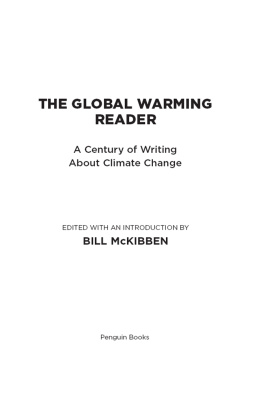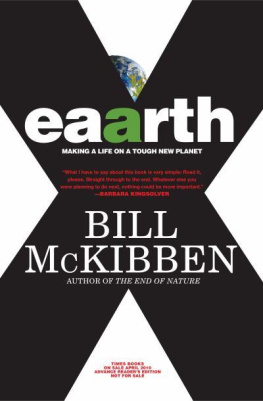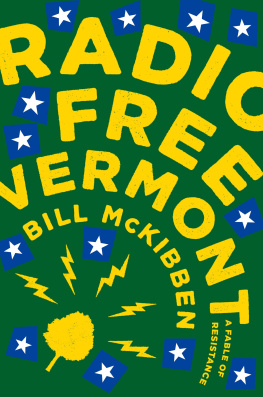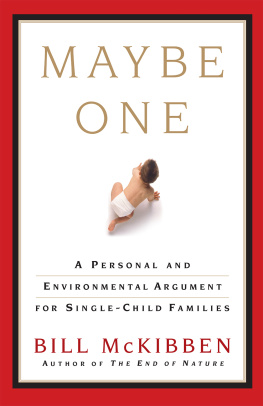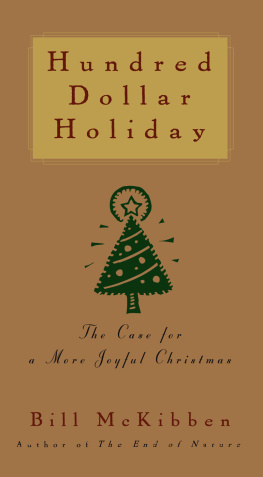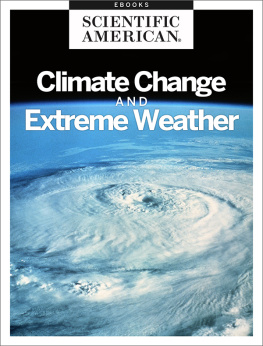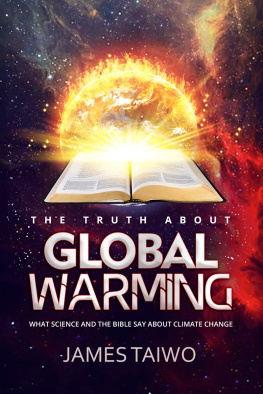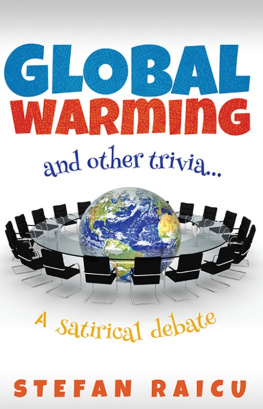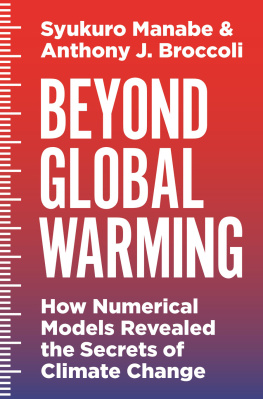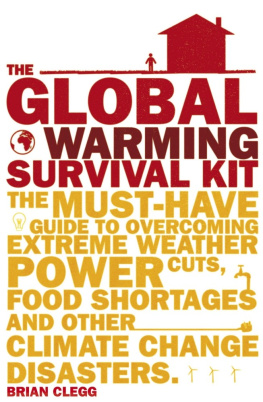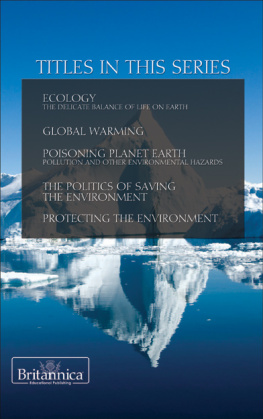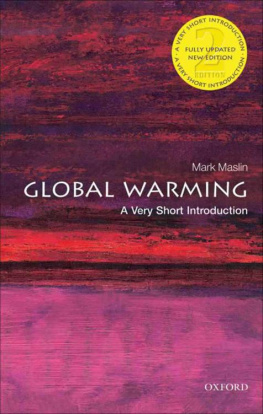PENGUIN BOOKS
THE GLOBAL WARMING READER
Bill McKibben is the author of a dozen books about the environment, including The End of Nature, the first book for a general audience about global warming. He is a founder of the grassroots climate campaign 350.org and is a frequent contributor to such publications as The New York Times, The Atlantic, Harpers Magazine, Mother Jones, The New York Review of Books, Granta, Rolling Stone, and Outside. He is a fellow of the American Academy of Arts and Sciences and has been awarded Guggenheim and Lyndhurst fellowships, the Lannan Prize, and honorary degrees from a dozen colleges. A scholar in residence at Middlebury College, he lives in Vermont with his wife, the writer Sue Halpern, and their daughter.
THE GLOBAL WARMING READER
A Century of Writing About Climate Change
EDITED WITH AN INTRODUCTION BY
BILL McKIBBEN
Penguin Books
PENGUIN BOOKS
Published by the Penguin Group
Penguin Group (USA) Inc., 375 Hudson Street, New York, New York 10014, U.S.A.
Penguin Group (Canada), 90 Eglinton Avenue East, Suite 700, Toronto,
Ontario, Canada M4P 2Y3 (a division of Pearson Penguin Canada Inc.)
Penguin Books Ltd, 80 Strand, London WC2R 0RL, England
Penguin Ireland, 25 St Stephens Green, Dublin 2, Ireland (a division of Penguin Books Ltd)
Penguin Group (Australia), 250 Camberwell Road, Camberwell,
Victoria 3124, Australia (a division of Pearson Australia Group Pty Ltd)
Penguin Books India Pvt Ltd, 11 Community Centre,
Panchsheel Park, New Delhi 110017, India
Penguin Group (NZ), 67 Apollo Drive, Rosedale, Auckland 0632,
New Zealand (a division of Pearson New Zealand Ltd)
Penguin Books (South Africa) (Pty) Ltd, 24 Sturdee Avenue,
Rosebank, Johannesburg 2196, South Africa
Penguin Books Ltd, Registered Offices:
80 Strand, London WC2R 0RL, England
First published in the United States of America by OR Books 2011
Published in Penguin Books 2012
1 3 5 7 9 10 8 6 4 2
Pages 423 and 425 are an extension of this copyright page
Anthology selection, introduction and introductory comments
to each essay copyright Bill McKibben, 2011
All rights reserved
ISBN: 978-1-101-57721-9
CIP data available
Printed in the United States of America
Except in the United States of America, this book is sold subject to the condition that it shall not, by way of trade or otherwise, be lent, resold, hired out, or otherwise circulated without the publishers prior consent in any form of binding or cover other than that in which it is published and without a similar condition including this condition being imposed on the subsequent purchaser.
The scanning, uploading, and distribution of this book via the Internet or via any other means without the permission of the publisher is illegal and punishable by law. Please purchase only authorized electronic editions and do not participate in or encourage electronic piracy of copyrighted materials. Your support of the authors rights is appreciated.
ALWAYS LEARNING
PEARSON
Version_2
Introduction
I write these words in May of 2011, the week after a huge outbreak of tornadoes killed hundreds across the American South; it was the second recent wave of twisters of unprecedented size and intensity. In Texas, a drought worse than the Dust Bowl has set huge parts of the state ablaze. Meanwhile, the Army Corps of Engineers is moving explosives into place to blow up a levee along the Mississippi River, swollen by the the third 100-year-flood in the last twenty yearsthough as the director of the Federal Emergency Management Administration noted at the end of 2010, the term 100-year event really lost its meaning this year. Thats because 2010 was the warmest year recorded, a year when 19 nations set new all-time high temperature records. The Arctic melted apace; Russia suffered a heat wave so epic that the Kremlin stopped all grain exports to the rest of the world; and nations from Australia to Pakistan suffered flooding so astonishing that by years end the worlds biggest insurance company, Munich Re, issued this statement: The only plausible explanation for the rise in weather-related catastrophes is climate change. The view that weather extremes are more frequent and intense due to global warming coincides with the current state of scientific knowledge.
And thats not the bad news. The bad news is that on April 6, the U.S. House of Representatives was presented with the following resolution:
Congress accepts the scientific findings of the Environmental Protection Agency that climate change is occurring, is caused largely by human activities, and poses significant risks for public health and welfare.
The final vote on the resolution? 184 in favor, 240 against. When some future Gibbon limns the decline and fall of our particular civilization, this may be one of the moments he cites.
In some sense, this anthology is an attempt to deal with the paradox that, though everyone (scientists, the insurance industry) we depend upon to analyze risk tells us we are facing the gravest crisis in human history, our political system here and around the world is doing nothing. The Democratic-controlled Senate last summer refused even to take a vote on the mild, modest, even tepid climate change bill that came before it; President Obama has wasted no political capital pushing for such legislation. There are many obstacles to change, of course: the inertia that comes with our dependence on fossil fuels; the powerful vested interests of the most profitable industry the world has ever seen. But theres also a fundamental lack of understanding about how high the stakes are, about what we can do, and most of all about what it means to be watching the only world humans have ever known change in deep and dramatic ways. We cant just be stunnedthat seems to lead to denial, to inaction. We need to feel whats happening, not just in our overheating bodies but in our minds and spirits too.
Perhaps the first thing to realize about global warming is what a new idea it is. The first few papers in the Science section of this anthology may belie that notion, but it is important while giving great honor to Arrhenius and the few others who first conceived the ideato realize that not even other scientists were paying attention until very recently. It was not until the late 1980s that climate change broke into the open: if you had to assign a date, it would be the June afternoon when NASAs James Hansen testified before a House committee, a story that ran above the fold in the New York Times the next day and signaled the start of a pervasive new worry for human beings.
For some while, the scale of that worry was not clear. Those of us who thought it was likely to be catastrophic (I wrote the first book for a general audience about this topic, in 1989, and it bore the fairly definitive title The End of Nature) had to wait a few years for science to conclusively confirm those fears. The worlds climatologists cobbled together what may turn out to be one of the most important organizations in the planets history: the Intergovernmental Panel on Climate Change (IPCC), which by 1995 had concluded that humans were warming the planet and that it was likely to be serious.
In the fifteen years since, its as if the planet itself has been conducting a rigorous peer review of that science, just to make sure it was right. Weve had a succession of incredibly warm yearsalready, in fact, the planet has warmed on average about one degree Celsius. And it turns out thats enough to cause huge physical changes, which are occurring faster than (habitually conservative) scientists would have predicted even a few years ago. For instance:
Next page
